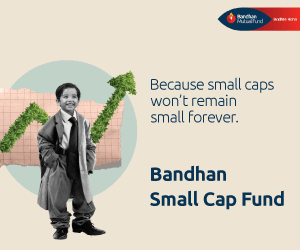Nippon India Gold Savings Fund: Good investment option in current market conditions

The outbreak of COVID-19 pandemic has caused great turmoil in equity markets all over the world including India. The lockdown announced by the Government in late March and gradual reopening of the economy in the face of continuing rise in COVID infections is likely to have an adverse impact on economic growth and corporate earnings. As a result, the outlook on the equity markets continue to remain very uncertain and volatility is likely to persist in the near to moderate term.

Source: National Stock Exchange, Advisorkhoj Research
With stock markets in turmoil and interest rates on decline with RBI cutting interest rate by 175 bps in the last one year, investors have been looking for alternative investment options. Gold as an asset class has been a strong outperformer in the last one year. Gold prices have risen 40% in the last one year.

Source: National Stock Exchange, Advisorkhoj Research
Gold and equity have negative correlation
Gold and equity prices are usually counter-cyclical to each other, e.g. gold prices rise, when equity prices fall and vice versa. The chart below shows the growth of Rs 10,000 investment in Nifty 50 TRI and gold over the last 10 years. The reason for negative correlation between gold and equity is that gold is seen as a store of value. In other words, unlike equity, gold is not affected by economic downturns. When economic growth slows down, investors rush to a safe asset like gold which causes the price of gold to go up. On the other hand, in bull markets, investors increase their asset allocation in equity from gold, which causes gold prices to remain subdued.

Source: Advisorkhoj Research
Gold has outperformed in the long term
The chart below shows the trailing returns of gold, Nifty 50 TRI and bank FDs over different time-scales ending 18th June 2020. You can see that gold has outperformed equity in the long term even though it underperformed in bull markets.

Source: Advisorkhoj Research
How to invest in Gold?
We have discussed a number of times in our blog that gold ETFs or gold funds are best ways to invest in gold. Unlike physical gold, there is no risk of impurities or theft in gold ETFs or gold funds. Unlike physical gold e.g. gold jewellery, gold bars etc. which incur storage costs if stored in bank lockers, the holding costs of gold ETFs and gold funds is very low. Gold ETFs and gold funds replicate the value of pure 24 carat gold and can be redeemed at any time depending on your requirements. You need to have a demat account to invest in gold ETFs. If you do not have a demat account, you need not open one simply to invest in gold - you can invest in gold funds. Gold funds are mutual fund schemes, where the underlying asset is a Gold ETF.
Nippon India Gold Savings Fund
Nippon India Gold Savings Fund was launched in 2011 and tracks the domestic price of gold. The expense ratio of Nippon India Gold Savings Fund is only 1.21%. The underlying asset of this fund is Nippon India ETF Gold BeES. This is one of the well-known and liquid gold ETFs.
The chart below shows the trailing returns of Nippon India Gold Savings Funds over different time-scales ending 18th June 2020.

Source: Advisorkhoj Research
Why invest in Nippon Gold Savings Fund?
- Though gold prices have appreciated substantially, it may continue to outperform in the near to medium term because the equity outlook is very uncertain. The RBI has forecasted a GDP contraction in FY 2021 and corporate earnings are likely to be severely impacted in the aftermath of COVID. A big down leg in equity can send gold prices soaring even further.
- Interest rates have come down substantially in the last 1 year. 3 to 5 year FD interest rates range between 5.1 – 5.5% only. On a post-tax basis, inflation adjusted returns from fixed deposits are very low. Interest rates are likely to remain low in the near to moderate term. Even the long term trajectory of interest rates is declining. Gold is likely to outperform to traditional fixed income investments in medium to long term.
- It is always prudent to have some exposure to gold in your long term asset allocation because it brings stability (reduces volatility) to your investment portfolio and is also a long term hedge against inflation.
Average 10 year rolling returns of Gold in the last 20 years was in the range of 10.5 – 11%, which is substantially higher the historical 10 year Government bond yields.
![Mutual Funds - Average 10 year rolling returns of Gold in the last 20 years Mutual Funds - Average 10 year rolling returns of Gold in the last 20 years]()
Source: Advisorkhoj Research
- Long term capital gains in Gold Funds are taxed at 20% after allowing for indexation benefits. This puts gold funds at a significant tax advantage compared to traditional fixed income investments like bank FDs.
- You do not need to have a demat account to invest in paper gold. You simply need to be Mutual Fund KYC compliant or submit your KYC documents (if you are a new investor) to Nippon India Mutual Fund or Karvy to invest in Nippon India Gold Savings Fund.
Summary
Gold has strong cultural significance in our country. It is not only important in auspicious occasions like marriage etc., but is also seen as a safe storage for your wealth. Gold has been the best performing asset class in the last couple of years.
In this post, we have discussed why gold as an asset class continues to be a good investment option in the current economic environment and market conditions. Nippon India Gold Savings Fund is good investment option for average retail investors who do not have demat accounts. You should have a long investment horizon for this fund. Investors should consult with their financial advisor, if Nippon India Gold Savings Fund is suitable for their investment needs.
Mutual Fund Investments are subject to market risk, read all scheme related documents carefully.
Queries
-
What is the benefit of mutual fund STP
Aug 29, 2019
-
How much to invest to meet target amount of Rs 2 Crores
Aug 26, 2019
-
Can I achieve my financial goals with my current mutual fund investments
Aug 24, 2019
-
Can you tell me return of various indices
Aug 19, 2019
-
What would be the post tax return on different investments
Aug 18, 2019
-
Which Principal Mutual Fund scheme will be suitable for my retirement corpus
Aug 16, 2019
-
What is the minimum holding period for availing NCD interest
Aug 4, 2019
Top Performing Mutual Funds
Recommended Reading
Fund News
-
Edelweiss Mutual Fund launches Edelweiss BSE Internet Economy Index Fund
Apr 25, 2025 by Advisorkhoj Team
-
Bajaj Finserv Mutual Fund launches Bajaj Finserv Nifty 50 Index Fund
Apr 25, 2025 by Advisorkhoj Team
-
SBI Mutual Fund launches SBI Income Plus Arbitrage Active FOF
Apr 23, 2025 by Advisorkhoj Team
-
Motilal Oswal Mutual Fund launches Motilal Oswal Infrastructure Fund
Apr 23, 2025 by Advisorkhoj Team
-
Groww Mutual Fund launches Groww Gilt Fund
Apr 23, 2025 by Advisorkhoj Team














